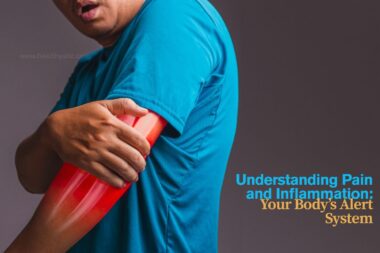Veterans are exposed to various physical and mental health hazards during their services. Veterans serve our country in many ways, and their health is often sacrificed in the line of duty.
Unfortunately, this can lead to several health problems later in life. These include everything from combat-related injuries to post-traumatic stress disorder (PTSD).
There are certain things that all veterans should keep in mind to stay healthy and vital:
Address injuries as early as possible
Veterans may be more likely to experience injuries during and after service. It’s essential to address these injuries as soon as possible. This may mean getting regular check-ups, physical therapy, or other treatments.
Some injuries, such as PTSD, can be more difficult to address. Veterans may want to consider seeking out counseling or therapy. There are many resources available to help veterans get the care they need.
Several hotlines are available, such as the Veterans Crisis Line and the National Suicide Prevention Lifeline. These can be good resources for veterans struggling with mental health.
Stay up-to-date on vaccines
The Department of Veterans Affairs (VA) recommends that all veterans receive certain vaccines. These include the influenza (flu) vaccine and the pneumococcal vaccine. Vaccines can help protect against serious and sometimes deadly diseases. They are an important part of preventive care for all veterans.
There are institutions such as the Mesothelioma Veterans Center, created specifically for veterans with mesothelioma and cancer caused by asbestos exposure. Numerous support groups and online forums are also dedicated to veteran health and wellness.
In addition to vaccines, veterans should be up-to-date on their other routine health screenings. These may include screenings for blood pressure, cholesterol, colon cancer, and more. Again, veterans can talk to their doctor about which screenings are right for them and when to have them.
Stay current on your wellness visits
The VA offers free wellness visits for all veterans. These visits are a great way to stay on top of your health. During these visits, your doctor will check your blood pressure, cholesterol, and more. You can also use this time to discuss any concerns about your health.
In addition to your regular wellness visits, you should also see your doctor if you have any new or worsening symptoms. Getting any new health problems checked out as soon as possible is important.
Also read: Understanding PTSD For Veterans
Seek prompt medical attention if you start to feel sick
The most important thing you can do for your health is to seek prompt medical attention if you start to feel sick. This is especially important if you have any COVID-19 symptoms. Veterans can call the VA’s Telehealth Services line at 1-800-ova-8387 to speak to a provider about their symptoms.
Besides COVID-19, several other health conditions can be more serious for veterans. These include diabetes, heart disease, and cancer. If you have any concerns about your health, don’t hesitate to reach out to your doctor.
Make self-care a priority
The demands of military service can be tough on your mental and emotional health. Therefore, it’s important to make self-care a priority. This may include regular exercise, eating a healthy diet, and getting enough sleep.
Many resources are available to help veterans care for their mental and emotional health. For example, the Veterans Crisis Line is a free, confidential resource available 24/7. Veterans can also find support from friends, family, and community members.
Connect with your support network
Veterans often have a strong support network. This may include family, friends, and fellow veterans. Connecting with this support network can be a great way to stay healthy and cope with any health problems you may be facing.
In addition, many organizations offer support to veterans. These include the Veterans of Foreign Wars (VFW), the American Legion, and the Veterans Affairs (VA).
The most important thing you can do for your health is to seek prompt medical attention if you start to feel sick. Veterans can call the VA’s Telehealth Services line at 1-800-ova-8387 to speak to a provider about their symptoms.
Ask for help
Veterans may feel like they need to be strong and independent. But it’s okay to ask for help when you need it. Many resources are available to help veterans, including the VA and various support groups. Asking for help is a sign of strength, not weakness.
Help is available 24/7 for veterans in crisis. The Veterans Crisis Line is a free, confidential resource available 24/7. Veterans can also find support from friends, family, and community members.
Also read: Service Dogs Can Help Veterans With PTSD and Anxiety: Study
Get involved in your community
Veterans can stay connected and involved in their community by joining veteran-specific organizations or groups. These organizations can offer support, resources, and social activities. In addition, getting involved in your community can help you stay healthy and connected to other veterans.
The Veterans of Foreign Wars (VFW), the American Legion, and the Veterans Affairs (VA) are just a few of the organizations that support veterans. In addition, many community groups offer support to veterans.
Quit smoking
Smoking is one of the leading causes of death among veterans. If you smoke, quitting is one of the best things you can do for your health. There are many resources available to help you quit smoking, including the VA’s Quit VET program.
The best way to quit smoking is to seek help from a healthcare provider or quit a smoking cessation program. There are many resources available to help you quit smoking, including the VA’s Quit VET program.
The Bottom Line
There are many things veterans can do to stay healthy. Vaccines, routine health screenings, and prompt medical attention for injuries are all important. Veterans should also make self-care a priority and connect with their support network. If you need help, don’t hesitate to ask for it.
However, some health problems, such as PTSD, can be more difficult to address. Veterans may want to consider seeking out counseling or therapy. There are many resources available to help veterans get the care they need.
Thumbnail Credit: Pexels
This article is published by our independent team of health and wellness pundits that publish original and informative content to empower readers to take charge of their health and embark on a physically, mentally, and emotionally balanced lifestyle.





































